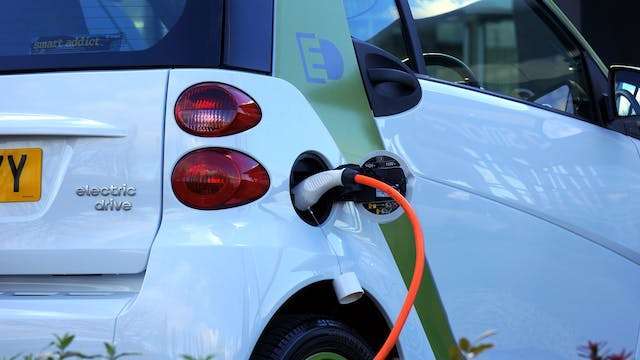UK Surpasses Record: 16,000 Public Electric Car Chargers Installed in 2023
Massive Surge in Charging Infrastructure Aims to Alleviate ‘Range Anxiety’ for Electric Vehicle Users
The United Kingdom has achieved a monumental milestone in its electric vehicle (EV) revolution, installing a record-breaking 16,000 public electric car chargers throughout 2023. This significant growth, accounting for a staggering 43% annual increase, has propelled the total number of public chargers to over 53,200, with more than 4,600 classified as ‘ultra-rapid’ chargers, marking a doubling in the capacity for longer journeys.

The data from ZapMap showcases a rapid expansion of the charging network, outpacing the growth of electric car sales, which rose by 28% in the year leading up to November 2023 compared to the previous 12 months. This surge in charging infrastructure aligns with the global challenge of transitioning from petrol and diesel vehicles to environmentally friendly electric cars.
The acceleration in charger installations becomes imperative as regulations like the zero emissions vehicles (Zev) mandate urge car manufacturers to significantly escalate electric vehicle sales. Despite the postponement of the ban on new petrol and diesel car sales until 2035, the mandate envisions an 80% penetration of electric cars in the UK market by 2030.
NSIA Launches $500M Renewable Energy Platform, Signs Pact with IFC for Green Investment
Terabase Energy’s Terafab Platform Marks Milestone in Solar Construction Automation
Melanie Shufflebotham, co-founder and chief operating officer of Zapmap, highlighted that the proliferation of faster chargers, including the doubling of ‘ultra-rapid’ chargers to over 4,600, aims to alleviate ‘range anxiety.’ She emphasized that these chargers, now surpassing 10,000 at 5,000 different locations across the UK, are not confined to motorway service areas but span across diverse locations like retail car parks and farm shops.
Andy Palmer, CEO of Pod Point and former head of Aston Martin, identified ‘range anxiety’ as a significant deterrent in the transition to electric vehicles. However, he stressed that this concern could be addressed by an expanded network of chargers, especially as today’s electric cars offer ranges of 200 miles or more, catering to the majority of drivers’ needs.
The key, as Palmer emphasized, lies in instilling confidence in motorists to undertake longer journeys by ensuring robust charging infrastructure. While ultra-rapid chargers cater to longer routes, the installation of slow chargers becomes crucial, especially for urban residents without off-street parking, providing convenient charging options.
However, challenges persist, including the need for a more widespread charger network and concerns about the pace of upgrades to the UK’s electricity grid. Disparities in charger provision across regions, such as Northern Ireland’s limited chargers compared to regions like London, underscore the need for equitable charging access across the UK.
With the government’s target of 300,000 publicly available chargers by 2030, sustained growth in installation remains essential, albeit increasingly challenging due to location availability and grid upgrades.
Read More about EV Charger Load Calculation
Source: Data from ZapMap, The Guardian
Follow us on LinkedIn”Electrical Insights” to get the latest updates in Electrical Engineering. You can also Follow us on LinkedIn and Facebook to see our latest posts on Electrical Engineering Topics.










